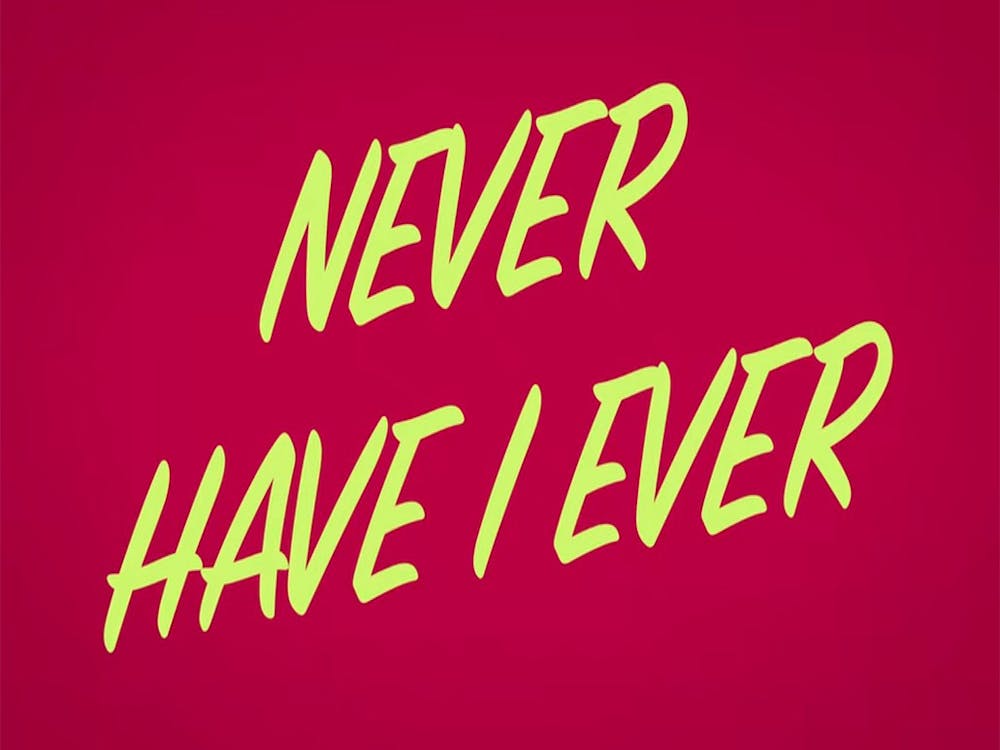If you’re wondering, I did watch all of “Never Have I Ever” in one sitting.
The Netflix show — narrated by tennis legend John McEnroe — follows high school sophomore Devi Vishwakumar (Maitreyi Ramakrishnan) in the wake of her father’s death, as she attempts to climb the popularity totem pole with her ensemble of diverse friends, intellectually competes with her arch-nemesis Ben (Jaren Lewison) and vies for the attention of the hottest guy at school, Paxton Hall-Yoshida (Darren Barnet).
Maybe not in that order.
The first five minutes of the show are absolute chaos: Devi’s father goes into cardiac arrest during a school orchestra performance, and Devi loses feeling in her legs from sheer grief, but instantly recovers from paralysis when she stands up to get a better view of Paxton’s bone structure.
But this chaos points to a fundamental element of the show: “Never Have I Ever” explores the chaotic complexity that surrounds the lives of first-generation Indian immigrants — the tug-of-war between traditional and modern that characterizes the everyday. Devi’s cousin, Kamala, chooses between a love marriage or an arranged marriage, the merits and repercussions of each decision fully fleshed out by the show. Devi’s mother chooses between staying in the states or moving back to India, her reasons for each articulated completely. Devi herself must choose between embracing her heritage or abandoning it in favor of assimilation, made clear during the Ganesh Puja in episode four.
I’m a first-generation kid, too. I’ve had to grapple with my two identities as an Indian and an American in plenty of ways. It’s not a matter of shame. Instead, it’s a struggle to fit in both spheres, a struggle that is all too common for many immigrant kids. “Never Have I Ever” presents them in a powerfully relatable yet comical way.
Of course, the show is not without flaws. The dialogue between Paxton and Devi is, at times, plainly unnatural. The way Devi curses out her mother caught me off guard. What bothers me most is that in attempting to show Devi as more than a stereotypical, smart South Asian kid, the show portrays her as someone obsessed with sex. It seems a trite and overused cliché, that this is the only way in which to add dimension to the “smart girl.”
Otherwise, Devi is a bold character and acts accordingly. I’ve heard complaints of the rather unrealistic elements of the show (a notable one being Devi’s attempt to converse with a literal coyote at a party), but they strike me as marks of someone struggling to process the trauma of losing a parent, of a character who has yet to heal, of a plot impeccably building itself to an ultimate resolution that had me in tears.
The ending of “Never Have I Ever” even hints at a second season, deliberately leaving strings untied and leaving me, at least, hooked for new episodes. I want to see how things shake out. I want to know what happens next. The show is, in that way, simply entertaining and the characters wholly endearing. You cry out when Devi makes poor choices. You root for Devi’s friends, Fabiola and Eleanor. You empathize with Devi’s pain.
So, did I binge-watch “Never Have I Ever” to see the plot resolve? Did I watch it for the nuanced, complicated characters? Did I watch it because I empathize with Devi’s struggles? Yes, yes and yes. But I also watched it because it’s a soapy teen show about a girl who looks like me.
And sometimes, that’s enough to keep me hooked.
Get The Chronicle straight to your inbox
Signup for our weekly newsletter. Cancel at any time.

Preetha Ramachandran is a Trinity senior and diversity, equity and inclusion coordinator for The Chronicle's 118th volume. She was previously senior editor for Volume 117.

